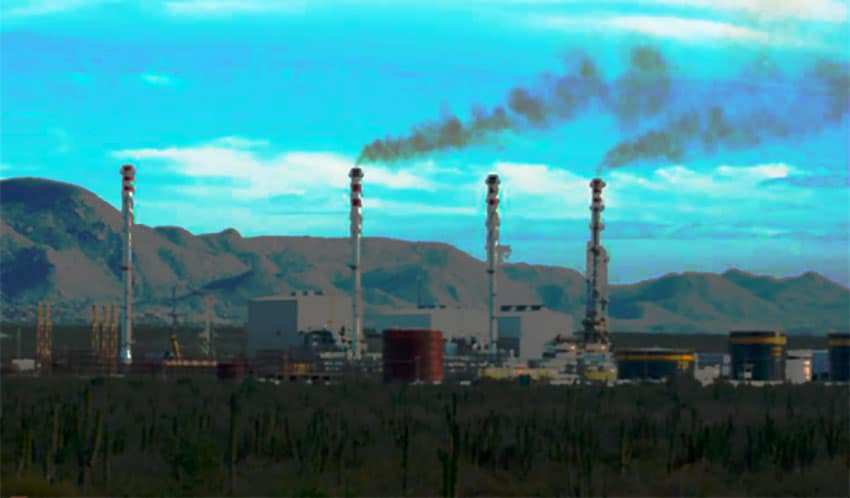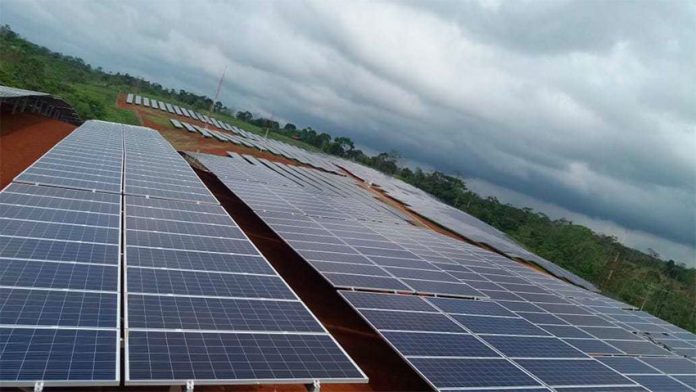President Andrés Manuel López Obrador, known as AMLO, has now been in office for about one year. It’s a good time to review his policies, and in particular his approach to the energy sector.
The previous administration of Enrique Peña Nieto undertook significant energy sector reforms, which AMLO generally opposed at the time and during his campaign for president. Understanding those reforms and their significance is crucial to understanding the new policies of AMLO’s first year.
Oil production is an important part of the Mexican economy and Petróleos Mexicanos (Pemex), the national oil company, is considered a crown jewel of Mexico. But due to declining production in the super giant Cantarell field and persistent underinvestment, oil production has been declining since its peak in 2004 — today it is just over half the 2004 level.
The electricity sector also faced challenges: the Federal Electricity Commission (CFE), the state monopoly utility, had high prices, low renewables penetration despite terrific resources, and an aging grid infrastructure.
Former president Peña Nieto’s energy reforms had two main goals — bringing in competition and capital. Competition was intended to bring in new entrants and technologies, ultimately contributing to the Mexican economy and lowering energy costs for Mexican consumers. The industry needed capital to keep up with growing demand for oil, gas, and power and to replace oil and gas production from declining fields.

But the average Mexican didn’t necessarily understand or accept the reforms, especially for oil. It’s difficult to understand in the United States, but in Mexico, oil is seen as an important part of the national patrimony that belongs to all Mexicans. The day that the Mexican oil industry was nationalized in 1938 is still commemorated as a holiday, when patriotic Mexicans contributed from their own savings to buy out the international companies that had been operating there.
In a survey we conducted around Mexico before the 2018 election, a majority of respondents didn’t know about the oil production decline, meaning that the need for more investment was not obvious to the general public. Bringing foreign oil companies back into Mexico was thus a controversial move.
In his campaign, AMLO focused on a concept he called energy sovereignty — bringing the energy industry back under government control and decreasing imports. As a result, many of the changes that have happened in the last year are focused on “taking back Mexico’s energy” — returning it to its state-run structure, a questionable proposition with questionable results.
The changes are most drastic in oil. AMLO put a moratorium on auctions for oil exploration for at least three years, saying he wants to see results from the auctions that have already occurred. He’ll be waiting a while — it takes at least four to five years to go from exploration to production in a new area.
The fact that the earlier auctions aren’t yet delivering production shouldn’t be a surprise to anyone. However, AMLO is honoring the contracts signed during the last administration.
Mexico has significant additional oil and gas potential, but Pemex doesn’t have the money or, in some cases, the expertise to develop them. Outside investment could bring expertise in the deepwater offshore and unconventional oil and gas resources like those in the southern United States. These resources are also present on the other side of the border, but U.S. producers are the best in the world at understanding and producing them.
AMLO is also very focused on the Mexican refining sector. Last year Mexico imported more than 70% of its refined fuels — gasoline, diesel and jet fuel — from the United States. AMLO commissioned a new refinery in Tabasco, his home state, and is focused on modernizing Mexico’s other refineries. Keeping more of the value-added from Mexico’s oil in the country seems like a good idea on its face, but refining is a high-capital, low-margin, relatively low-employment business.
Modernizing existing refineries might be a good investment, but building a new refinery from scratch when there is ample capacity right across the border is a questionable investment, especially when AMLO says Pemex can deliver it for US $8 billion in three years. When the project went out to bid to international companies, they came in at $10 to $12 billion and four to six years.
Additionally, retrenchment at CFE is harming investment in renewable energy. AMLO’s administration cancelled what would have been Mexico’s fourth clean energy auction, despite the fact that the previous three auctions were very successful, and unlike in oil, are already bringing results. The first three auctions yielded contracts for seven gigawatts of wind and solar capacity, and the average price in the last auction was just $0.021 per kilowatt-hour, among the lowest costs ever bid at that time in late 2017. It’s very doubtful that CFE would achieve these prices for new electricity without competition.
And instead of focusing on renewables, AMLO’s administration is focused on modernizing CFE’s existing generation and even building new coal. The head of the CFE has dismissed wind and solar as unreliable and expensive, and said: “We do not want to buy electricity, we want to generate electricity, it’s an aberration that we are forced to buy electricity from our competitors.”
AMLO and U.S. President Trump are both populists, although from different sides of the political spectrum. But their views on energy, and especially renewable energy, are somewhat similar. They both hark back to an earlier time, when energy security meant self-sufficiency and renewable power was outside the mainstream.
AMLO’s energy policies could be worse, but they are bad enough. He is holding Mexico back from creating a more modern energy system with lower prices for consumers and in terms of environmental and greenhouse gas emissions performance.
The writer is a fellow in the Cross-Brookings Initiative on Energy and Climate. Her work is focused on the intersection of energy, environment and policy, including climate policy and international cooperation, energy efficiency, unconventional oil and gas development, regional and global natural gas trade and the energy-water nexus. This piece was originally published by Brookings.
